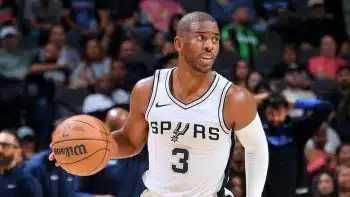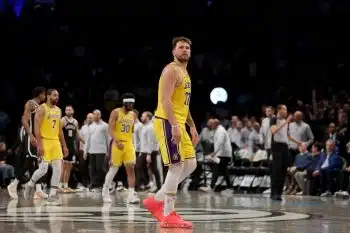NBA
High-Performance Mindfulness: Mental Skills Training For The Bench

From the mental performance side, one of the most underexplored and underutilized parts of the game is bench time. The period during timeouts and when players wait to go into the game presents a huge opportunity to prime performance. Using this time inefficiently is missing a great opportunity.
Here’s why.
Beta Mind to Higher Flow State
The number one reason that players do not get off to fast starts during the game is that they are not mentally focused and/or do not bring positive energy. Whether they are starters or rotation players, priming performance through training these two elements can help to propel players into high-performance states.
How does this relate to bench protocols? When players are substituting in and out of the game, the faster a player can move from a Beta state of mind (analyzing and thinking) to the effortlessness of being in the flow of the game, the greater the probability for higher-performance outputs to take place.
Employing effective mental performance techniques can help players reduce the buffering time that occurs from sitting to actively accessing the flow of the game. When players FEEL in the flow of the game, individual and collective focus and confidence over the long term has been shown to move upwards.
The Bench
Mental tools can help players refine mental focus and confidence to boost mental performance when it matters most. On the bench, players have time to focus and boost confidence before resuming play. This is why the bench may be the most underutilized performance optimization time during the game for the player.
When waiting and/or preparing to go into the game, implementing mental skills give players the chance to maximize their potential for success. Employing mental skills during this segment of time can help to ease the player back into the flow of the game.
Players and player development departments, who craft mental performance skills, specifically for these periods, are winning the game of mental inches. The more these processes are implemented, the greater the chance for gaining an edge on the court.
When a player comes out of the game due to poor performance, there may be nothing more valuable than to lock-back-in on the task at hand. These moments give players the chance to get back on track fast.
The problem is, many players either don’t remember to do this when they come out of the game, or they do not have a consistent or reliable mental performance process to dial focus and confidence back in after the emotional volatility of the poor performance.
Another great time to regroup, refocus and reenergize is at halftime. Generally, at halftime, there is more time for the player to dive down deep into the psyche to find balance.
When players struggle in the first half of the game, halftime presents a valuable opportunity to reset and refocus.
Interestingly, a coaching staff that also dials in mentally may provide their players and organization/program with an added advantage as well.
Postgame
After the game, it is always good to celebrate wins and high performance. However, after poor performance and losses, it’s crucial to have a way for letting go of the bad plays from the game.
From the player’s perspective, post-game is a great time to evaluate how mental performance skills were used during the game. It is also a great time to understand how the player felt during the game. Were there any situations that were less than optimal? Are those plays, experiences, or situations lingering? If they are, nipping them in the bud with tools such as meditation and breathwork is important.
Just like the time on the bench, the moments post-game may be one of the most underutilized periods for players seeking to maximize improvement. Post-game, employing a process for evaluating performance and mental skill implementation during the game can help identify what has moved the dial in on-court improvement and what has not.
As a player, taking a post-game reconciliation of how you performed and how you felt throughout that performance can help you more easily determine which methods are optimizing play.
Players and coaches that employ mental skills and processes for neutralizing these potentially impeding mental elements have the edge.











